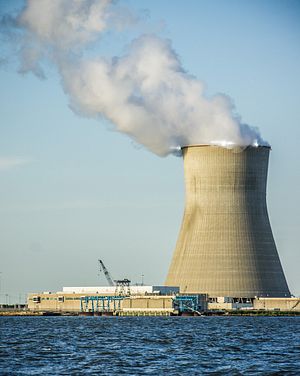Japan appears to be making slow but steady progress on the long road to nuclear power normalcy, three years after the tragic Tohoku earthquake and tsunami claimed thousands of lives and caused the Fukushima nuclear disaster. Bloomberg Businessweek reports that the Japanese government will allow a few residents to “return to their homes near Tokyo Electric Power’s crippled complex.”
The lifting of an evacuation order will allow residents to reoccupy their homes within the previously restricted 20-kilometer evacuation zone. The move will affect a limited number of the thousands still living in temporary accommodations more than three years after the crisis. Only 350 people in 117 households will move back into the 20-kilometer evacuation area. Amid this progress, residents remain wary of moving back due to fears of radiation. 98,000 evacuees in Japan still live in temporary accommodation.
While the news of evacuees returning to their old homes hearkens to the magnitude of the human tragedy still palpable in Japan three years after the fact, Prime Minister Shinzo Abe’s government is attempting to restart a certain number of Japan’s nuclear reactors. Following the earthquake and tsunami in 2011, then-Prime Minister of Japan Naoto Kan moved to “start from scratch” by moving Japan away from nuclear power towards renewable energy.
Prior to the Fukushima crisis, nuclear power plants provided 30 percent of Japan’s energy needs and plans existed to expand that to 50 percent. Given the public reaction to the Fukushima crisis, Kan’s government banned the use of nuclear power.
According to Reuters, Abe plans on reviving Japan’s use of nuclear power almost entirely. However, due to a failure to pass today’s increasingly more stringent safety requirements, only one-third of Japan’s reactors will potentially be reactivated. The Abe administration will be unable to restart reactors that do not clear a series of “seismological, economic, logistical and political hurdles.”
According to current estimates by Reuters, “of Japan’s remaining four dozen reactors, 14 will probably restart at some point, a further 17 are uncertain and 17 will probably never be switched back on.” Eventually, nuclear power will comprise 10 percent of Japan’s power supply — a significant drop from its pre-Fukushima high of 30 percent.
Kan has been critical of the Abe administration’s move to reevaluate the role of nuclear power in Japan. In an interview with Democracy Now earlier this month, he notes that “now is the crucial time for us to eliminate nuclear power, or we forgive the Abe administration, which is going in the opposite direction.” He acknowledges that his views on nuclear power were influenced by the “nuclear village” lobbying group, which he describes as the “strongest pressure group politically, socially, and in terms of influence on the media.”

































